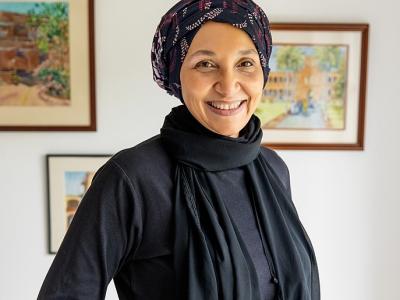
A lecture by Dr Bhakti Shringarpure (IASH-SSPS Research Fellow 2022; University of Connecticut). Chaired by Dr Terri Ochiagha Plaza, School of Literatures, Languages and Cultures, University of Edinburgh.
Literary production by writers from the African continent has increased exponentially over the past two decades. With an exciting rise in digital platforms, awards, anthologies and lucrative publishing deals, the figure of the African writer has become the subject of much discussion and debate. However, a missing component in these literary circuits is a focus on African writers' lives. A turn to biography can facilitate interconnections between writers and their worlds, and privilege intersections between historical and social context, and the emergence and consolidation of literary lives. Biographies help to articulate, assert and deepen the history of African literature. I will present some ongoing research from my biography of Sudanese-Scottish writer, Leila Aboulela (b.1964).
Aboulela was born in Khartoum, Sudan to an Egyptian mother and Sudanese father, but has spent most of her adult life in Aberdeen, Scotland. Her ascent into the literary world has been steady with six novels, two story collections and several radio plays. Aboulela is claimed by many literary universes, from Sudanese and Scottish literature to Muslim women’s literature, as well as the growing body of Black British writing. Aboulela’s books do the work of bridging the often strained cultural, linguistic and geopolitical relations between a predominantly Muslim and ethnically and linguistically Arab region of the Middle East and North Africa (MENA) and the vast, predominantly Black region of sub-Saharan Africa consisting of 46 countries. Furthermore, Aboulela’s writing about and from Scotland, where she has been based for the past two decades, adds yet another dimension to her preoccupation with places on the margins of empire. My presentation will illustrate the ways in which biographies such as Aboulela's can complicate, enrich and expand not just African literary histories but African studies, more broadly.
The event will be followed by a reception in the foyer of the Chrystal Macmillan Building.
